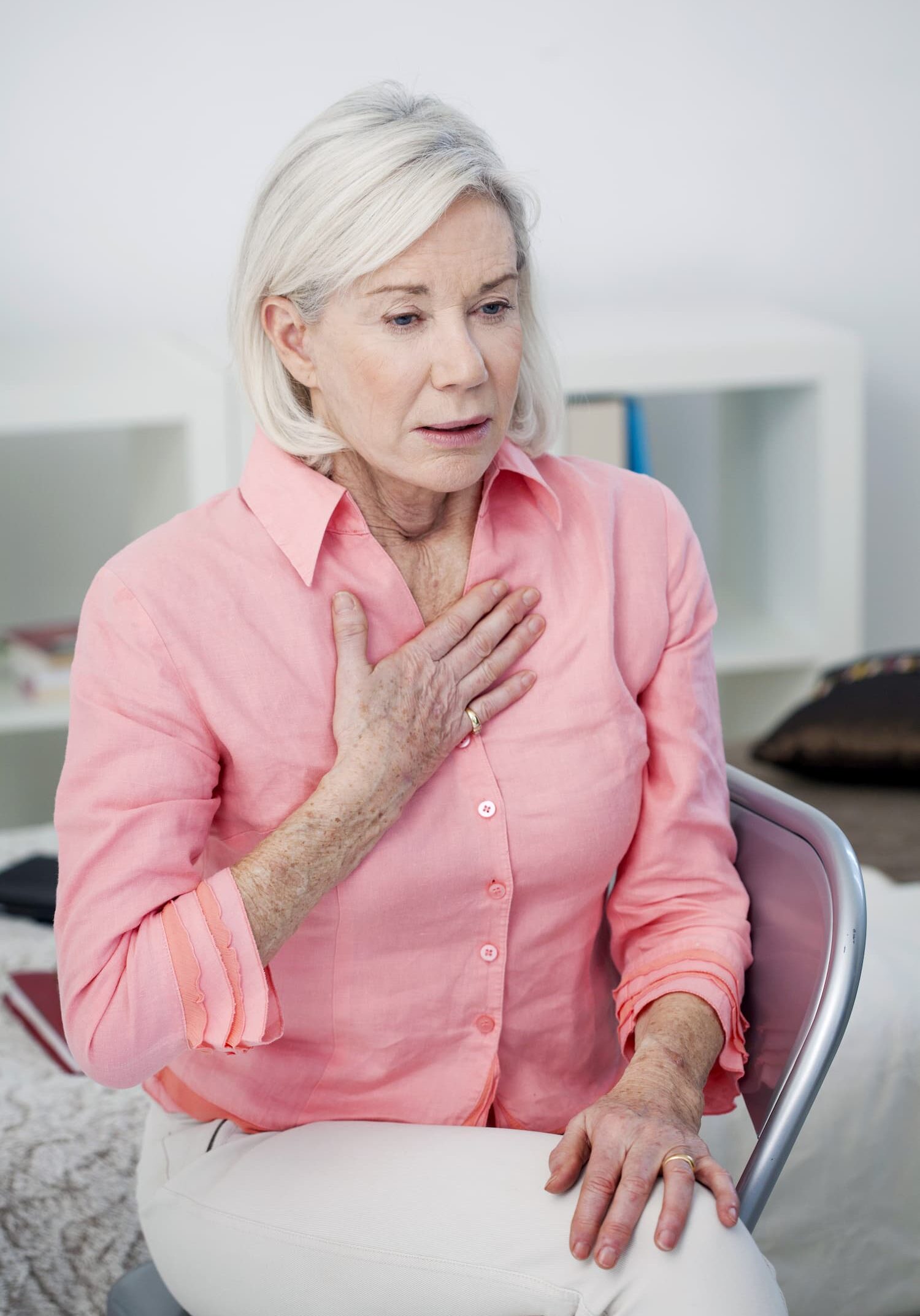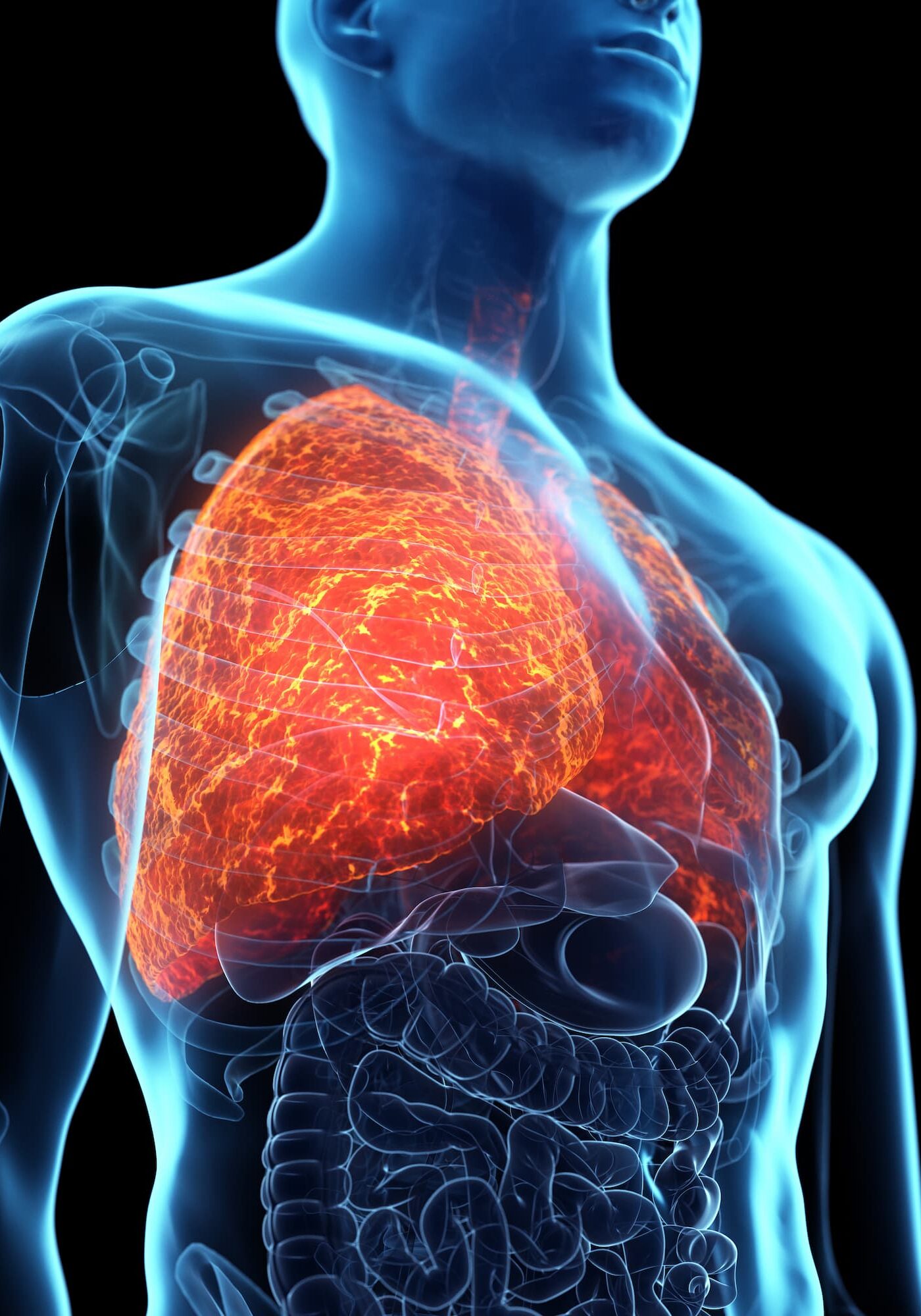Chronic Obstructive
Pulmonary Disease or COPD
COPD is a condition that commonly affects older individuals who have smoked and gradually worsens over time. With the correct diagnosis and treatment, it is possible to manage COPD to ensure long term effective care.

What is COPD?
COPD stands for chronic obstructive pulmonary disease and encompasses several different health conditions that affect the lungs. This includes chronic bronchitis, caused by inflammation of the airways that continues over time, and emphysema, which results from damage to the inner air sacs within your lungs.
COPD is most commonly found in middle-aged individuals or older adults that smoke and tends to get worse gradually over time rather than having a sudden onset. Many people are not aware they have COPD until their symptoms worsen.
Symptoms of COPD
The primary symptoms of COPD include the following:
- Breathlessness in everyday activities, as well as during exercise
- A chesty cough with phlegm that persists over time – this symptom is often confused with a 'smoker's cough', but can indicate a more serious issue
- Regular chest infections that don't seem to go away in the long term
- Wheezing or whistling when breathing
Without prompt treatment, COPD can progressively get worse over time. Proper medical care and attention are needed to prevent the continued worsening of this condition, as well as to handle flare-ups that can occur during certain periods.
Causes of COPD
COPD is typically caused by inflammation, narrowing and damage of the lungs. As such, it's often considered a smoker's disease, as smoking can be one of the leading causes of this long-term condition. If you smoke, you are more at risk of COPD. This risk increases with the length of time you smoke.
While smoking is the most likely cause of COPD, this condition can also result from environmental factors. Individuals who have long-term exposure to dust or fumes may be more likely to be diagnosed with COPD. Outside of these factors, there is also a rare genetic condition in which the lungs are more vulnerable to damage, which can result in COPD regardless of environment or history.

Treatments and investigations
Diagnosing COPD typically involves the use of spirometry for full lung function testing and reversibility. These tests examine the function of your lungs by looking at your breathing and are usually carried out by a medical professional using a specific device or machine. Once a diagnosis of COPD is confirmed, you will then be able to seek the correct treatment.
There is no cure for COPD. As the damage to the lungs has already been done, the reason for treatment is to help with symptoms of breathlessness and prevent flare-ups. If you continue to smoke, it is advisable to stop smoking to prevent the worsening of the condition. You may be offered inhalers or medications to help your breathing. Pulmonary rehabilitation, which is a mix of exercise classes and education, may be offered to improve overall health. In some cases, specific procedures involving bronchoscopy or surgery may be offered to reduce breathlessness. Lung transplant is offered to those with very severe disease if they have stopped smoking.
Make an enquiry